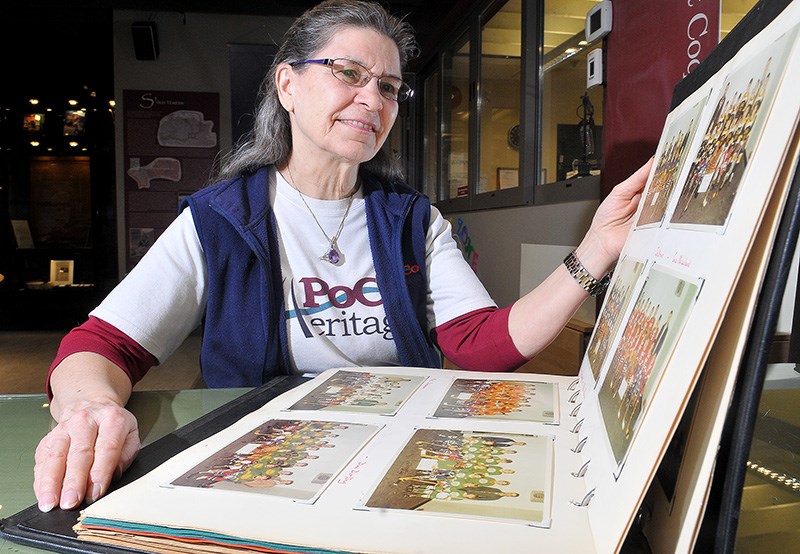Baseball was being played in Port Coquitlam even before it was Port Coquitlam.
The first recorded game was in 1901, when the community was known at Westminster Junction, a crossroads for the railroad as it branched off towards either Vancouver or New Westminster.
That’s one of the fascinating tidbits of information that comprise a new exhibit about Port Coquitlam’s sporting history and cutlure that is opening soon at the PoCo Heritage Museum on McAllister Street.
Julie Schmidt, the president of PoCo Heritage, said the idea of collecting and sharing the city’s sports stories grew from a research project conducted last year by a summer student who went through more than 100 years of newspaper archives to collect some of those stories. Others have been contributed by community members who continue to drop off artifacts and share memories even as museum staff and volunteers put together displays.
Schmidt said she’s not surprised the community is embracing the exhibit.
“Sports is important to people,” she said. “It gets people together.”
Which is just what was happening in the early twentieth century as the small community of railway workers started to plant roots in the area, start families, make connections.
“That’s what people did for socializing,” Schmidt said. “There was no TV.”
By 1912, the baseballers from Westminster Junction had organized themselves into a team that was a charter member of British Columbia’s first competitive baseball league and Port Coquitlam had some sort of presence in the old Dewdney Baseball League into the 1960s.
But, Schmidt said, Port Coquitlam’s sporting passions went far beyond the baseball diamond. Horses from Black’s Ranch were brought to New Westminster to race, lacrosse was played in an outdoor box at what is now Rowland Park and the city’s bowling alley remains one of its longest-running businesses.
Some of Port Coquitlam’s sporting lore even transcends the city; it’s produced three Canadian curling champions even though there’s no curling rink.
“Sports is part of the culture of Port Coquitlam,” Schmidt said. “We’ve always had sports.”
The exhibit, which should be open to the public by the end of January, will feature 12 interpretive panels highlighting various sports as well as athletes like softball player Jennifer Salling, who went from a star athlete at Terry Fox secondary school to playing for Canada’s national team that won a gold medal at the 2015 Pan American Games in Toronto. Of course, there’s a panel for Terry Fox; but it highlights his sports activities in basketball and track and field rather than his heroic accomplishment running across Canada.
Schmidt said a community’s sports stories are an important point of pride for its residents. The circumstances and characters of games won and trophies earned are remembered long into the future, then passed around the dinner and pub table.
“It’s about friendship and the people you know,” Schmidt said.
Sports can also represent the circumstance and economic climate of the community.
Schmidt said entire teams and even leagues disappeared during the war years. It was difficult to find much information about organized women’s soccer until the 1960s, men’s softball has all but disappeared from the local sports scene.
Even the names of local businesses that sponsored teams, leagues and trophies offer a glimpse into the community’s prosperity, or lack of it, at any given time.
“Sports is a reflection of society, what is going on, what is important,” Schmidt said.



